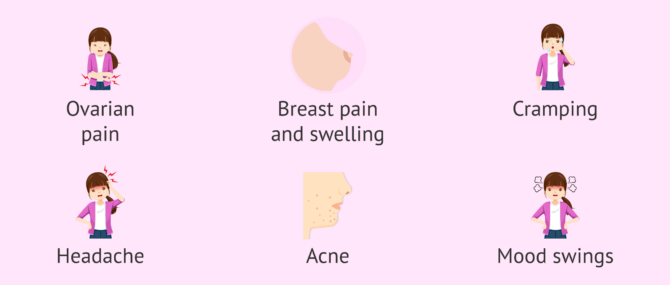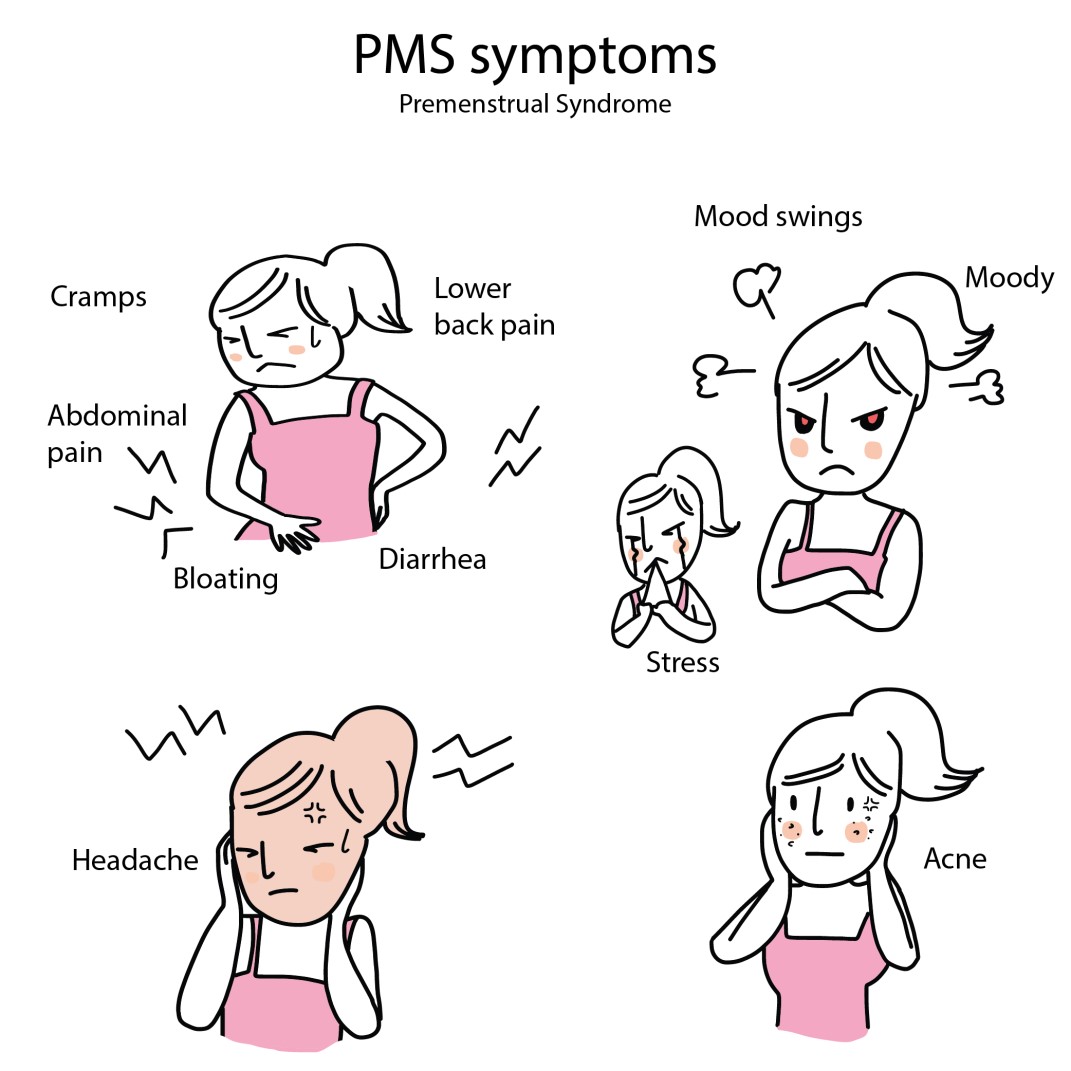Signs and Symptoms Across The 4 Menstrual Cycle Phase: Exploring the phases.
Table of Contents
Signs and symptoms experienced during the menstrual cycle are a natural and essential process in the female body, typically lasting around 28 days. Each menstrual cycle phase is characterized by distinct hormonal changes and physiological events, which can manifest in various signs and symptoms. This comprehensive guide will explore the signs and symptoms of each menstrual cycle phase, empowering individuals to understand their bodies and menstrual health better.

Menstrual Phase (Days 1-5):
The menstrual phase marks the beginning of the menstrual cycle, characterized by the shedding of the uterine lining. Signs and symptoms may include
- Bleeding: Menstrual bleeding is the most noticeable sign of this phase, caused by the shedding of the uterine lining.
- Cramps: Many individuals experience menstrual cramps caused by uterine contractions as they shed their lining.
- Fatigue: Some people may feel tired or lethargic during menstruation due to hormonal changes and blood loss.
- Mood swings: Fluctuations in hormone levels can contribute to mood swings, irritability, or emotional sensitivity.
Link unto:
Menstrual Cycle Tracking: Understanding the Importance for Health and Well-being
Period And Acne &Causes And 5 Tips For Controlling Acne Breakouts During Period.
Menstrual Cycle &10 Signs That Show Your Period Is About To Start
Follicular Phase (Days 6-14):
The follicular phase begins after menstruation and is characterized by the development of ovarian follicles in preparation for ovulation. Signs and symptoms may include
- Lighter bleeding or spotting: Menstrual bleeding may taper off during the latter part of the menstrual phase.
- Increased energy: As hormone levels rise, many individuals experience increased energy and motivation.
- Improved mood: Hormonal changes can lead to a more positive mood and decreased irritability.
- Cervical mucus changes: Cervical mucus may become clearer, wetter, and more abundant as ovulation approaches.
Ovulatory Phase (Day 14):
Ovulation typically occurs around day 14 of the menstrual cycle and marks the release of a mature egg from the ovary. Signs and symptoms may include
- Increased libido: Some individuals may experience heightened sexual desire around ovulation, driven by hormonal changes.
- Changes in cervical mucus: Cervical mucus becomes thin, clear, and stretchy, resembling egg whites, which aids sperm in reaching the egg.
- Mid-cycle pain (mittelschmerz): Some individuals experience mild abdominal discomfort or pain around the time of ovulation.
- Basal body temperature (BBT) rise: BBT typically increases slightly after ovulation, indicating that ovulation has occurred.
Check out:
BALANCE TIME AND ACTIVITIES -5 actions to take
Immune System Booster: 6 Essential Strategies for a Stronger Defense Against Illness
Luteal Phase (Days 15-28):
The luteal phase follows ovulation and is characterized by the corpus luteum formation, which secretes progesterone to prepare the uterine lining for potential implantation.

- Breast tenderness: Hormonal changes during the luteal phase can lead to breast tenderness or swelling.
- Bloating: Some individuals may experience bloating or water retention during the luteal phase.
- Mood changes: Mood swings, irritability, or anxiety may occur as hormone levels fluctuate.
- Premenstrual syndrome (PMS) symptoms: Symptoms such as headache, fatigue, food cravings, and acne may worsen in the days leading up to menstruation.
Conclusion:
The menstrual cycle is a dynamic process influenced by hormonal fluctuations and physiological changes. By understanding the signs and symptoms associated with each menstrual cycle phase, individuals can gain valuable insights into their reproductive health and well-being. It’s important to note that individual experiences can vary widely, and not everyone will experience all of these symptoms. Age, overall health, and hormonal balance can also influence the severity and nature of menstrual cycle symptoms. Whether recognizing the onset of menstruation, tracking ovulation for fertility awareness, or managing symptoms throughout the cycle, knowledge of menstrual cycle phases can empower individuals to take control of their menstrual health and overall wellness.
